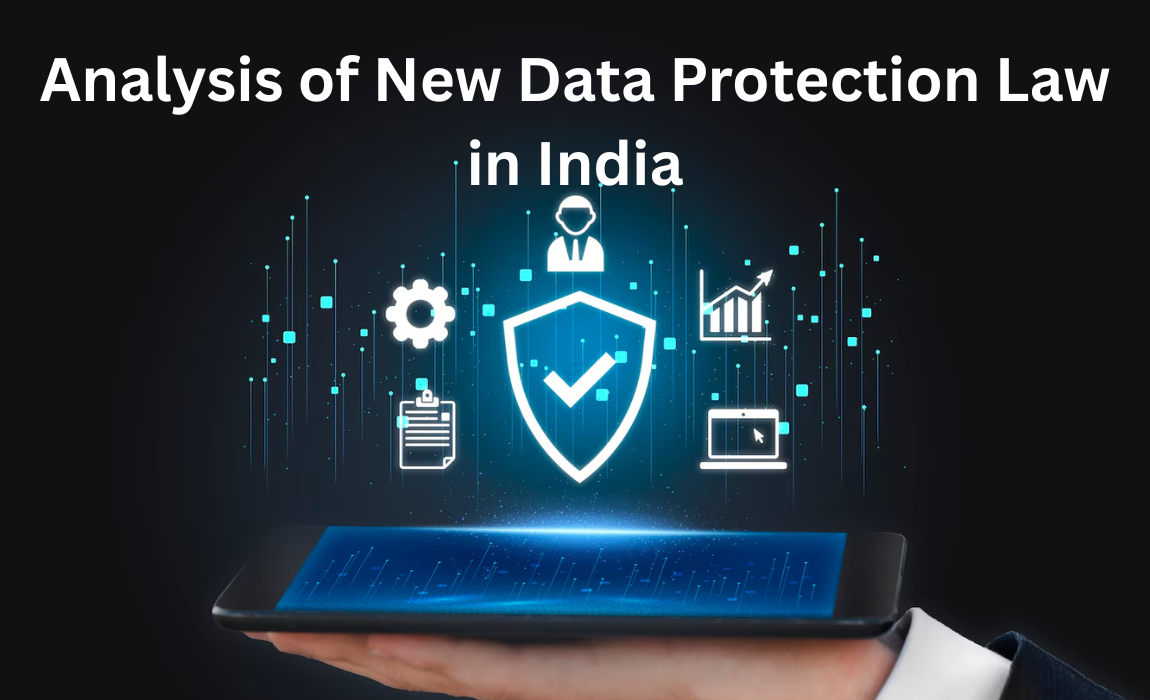
Analysis of New Data Protection Law in India
In an era dominated by digital technology, the protection of personal data is not just a matter of privacy but one of constitutional significance. The enactment of the Digital Personal Data Protection Act, 2023 (DPDP Act) marks a watershed moment in India's legal landscape, seeking to balance the individual's right to privacy with the imperatives of innovation, national security, and governance. For the Indian judiciary, this legislation opens new interpretive and regulatory frontiers, with wide-ranging implications for constitutional rights, administrative law, and corporate governance.
The DPDP Act was enacted in the backdrop of the landmark K.S. Puttaswamy v. Union of India (2017) decision, in which the Supreme Court declared the right to privacy as a fundamental right under Article 21. This judgment laid the constitutional foundation for a comprehensive data protection regime. The subsequent legislative journey—marked by the Justice B.N. Srikrishna Committee Report (2018) and multiple draft bills—culminated in the DPDP Act, which finally attempts to codify data protection norms in India.
At its core, the Act provides a framework governing the processing of digital personal data. It defines key stakeholders—Data Principals (individuals), Data Fiduciaries (entities processing data), and the Data Protection Board (adjudicatory authority). The law mandates that personal data be processed only for lawful purposes and with consent of the data principal, thus affirming the principle of informational self-determination.
However, the law is not without controversy. From a constitutional standpoint, its broad exemptions for the State under Section 17 raise red flags. The government can exempt any of its agencies from the application of the Act in the name of sovereignty, public order, or national security—terms that remain undefined and open to arbitrary interpretation. Such unchecked executive discretion could dilute the privacy protections envisaged by the Supreme Court in the Puttaswamy verdict, which had emphasised proportionality, necessity, and legality as the cornerstones for any State intrusion into personal data.
Further, the DPDP Act lacks a robust independent regulator. Unlike the GDPR in the EU, which has Data Protection Authorities with substantial autonomy, India’s Data Protection Board is appointed and controlled by the executive. This undermines the doctrine of institutional independence—a vital component of administrative fairness and due process.
Another legal concern is the limited scope of the Act, which applies only to digital personal data and excludes anonymised, non-personal, or manually processed data. In doing so, the law leaves large swathes of personal data outside its purview, despite the fact that data breaches and profiling can occur across platforms. For a country with a large offline population and hybrid data ecosystems, this selective coverage creates regulatory loopholes.
The consent framework, while commendable in theory, may prove illusory in practice. Most individuals—particularly those from socio-economically disadvantaged groups—may not fully understand or exercise meaningful control over their data. This raises the question: is informed consent truly informed in a country with digital illiteracy and language barriers?
On the positive side, the Act includes obligations for data minimisation, purpose limitation, and storage limitation, as well as the right to correction and grievance redressal for data principals. These reflect constitutional values of individual dignity, transparency, and accountability.
From a judicial perspective, the DPDP Act will likely face scrutiny on grounds of vagueness, excessive delegation, and violation of fundamental rights. It will be for the courts to ensure that the Act aligns with constitutional principles and that any restriction on privacy is proportionate, non-arbitrary, and legally justified.
In conclusion, while the Digital Personal Data Protection Act, 2023 is a significant step toward securing data rights in India, it must evolve through legislative refinement and judicial interpretation. The judiciary will play a crucial role in striking the balance between the State’s interests and citizens’ fundamental rights. For India to truly become a data-secure and privacy respecting digital economy, it must not compromise constitutional morality at the altar of administrative convenience.
